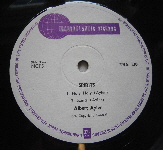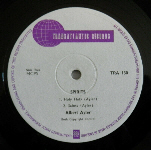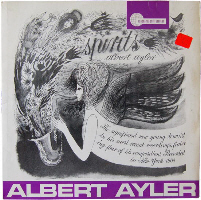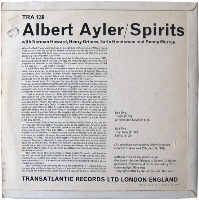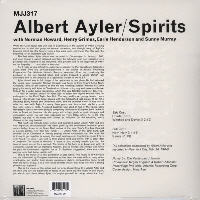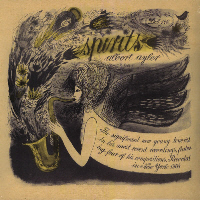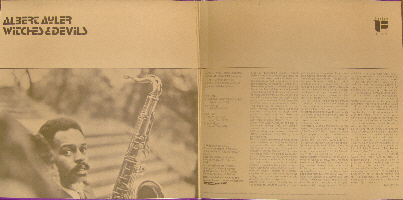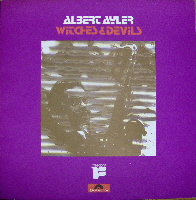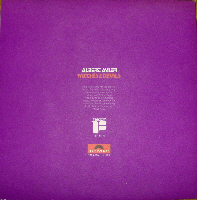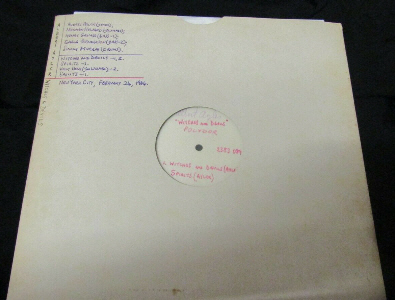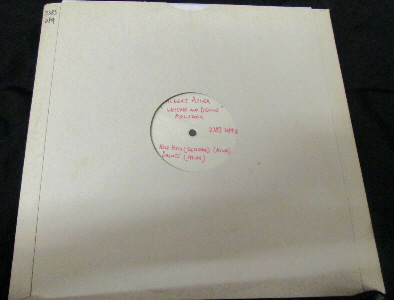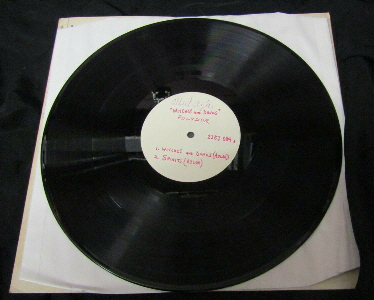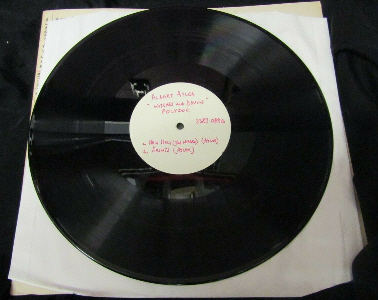|
Music Is The Healing Force Of The Universe The Inconsistency of |
|
|
||||||||||||||||
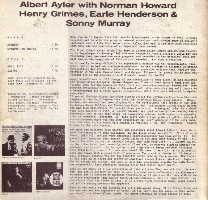 |
|||||||
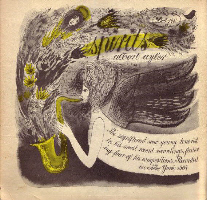 |
|||||||
|
From the London Jazz Collector site: |
|||||||
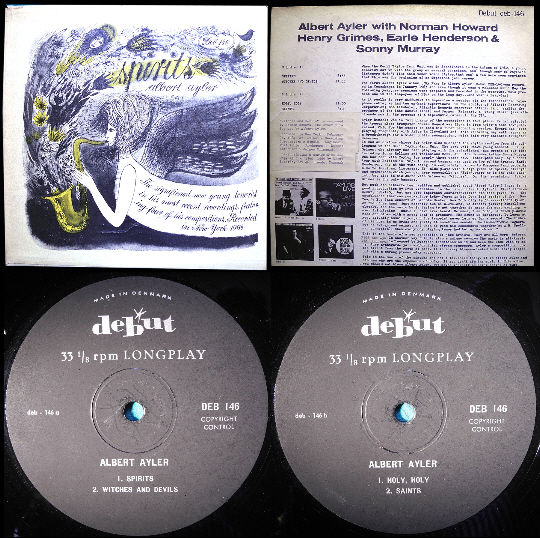 |
|||||||
|
This version of Spirits contains typewritten stickers on the back cover: |
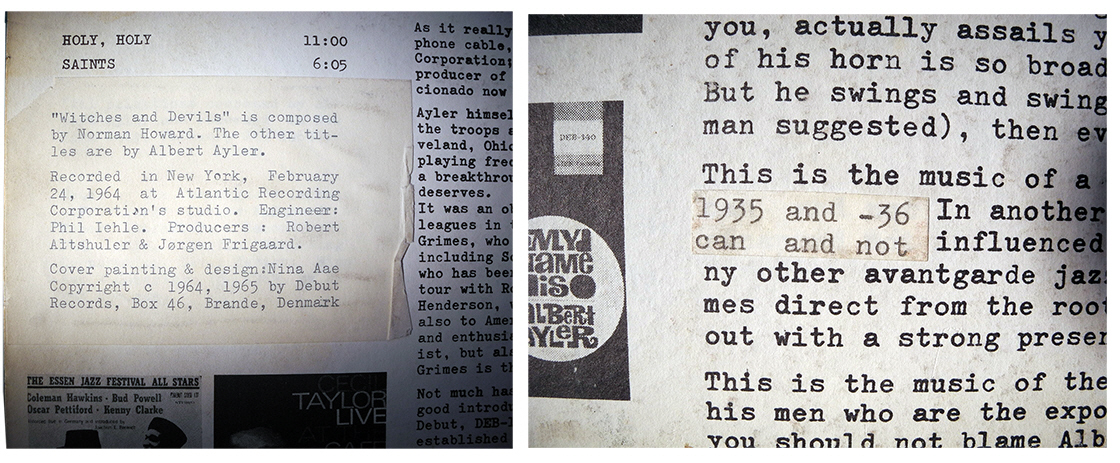 |
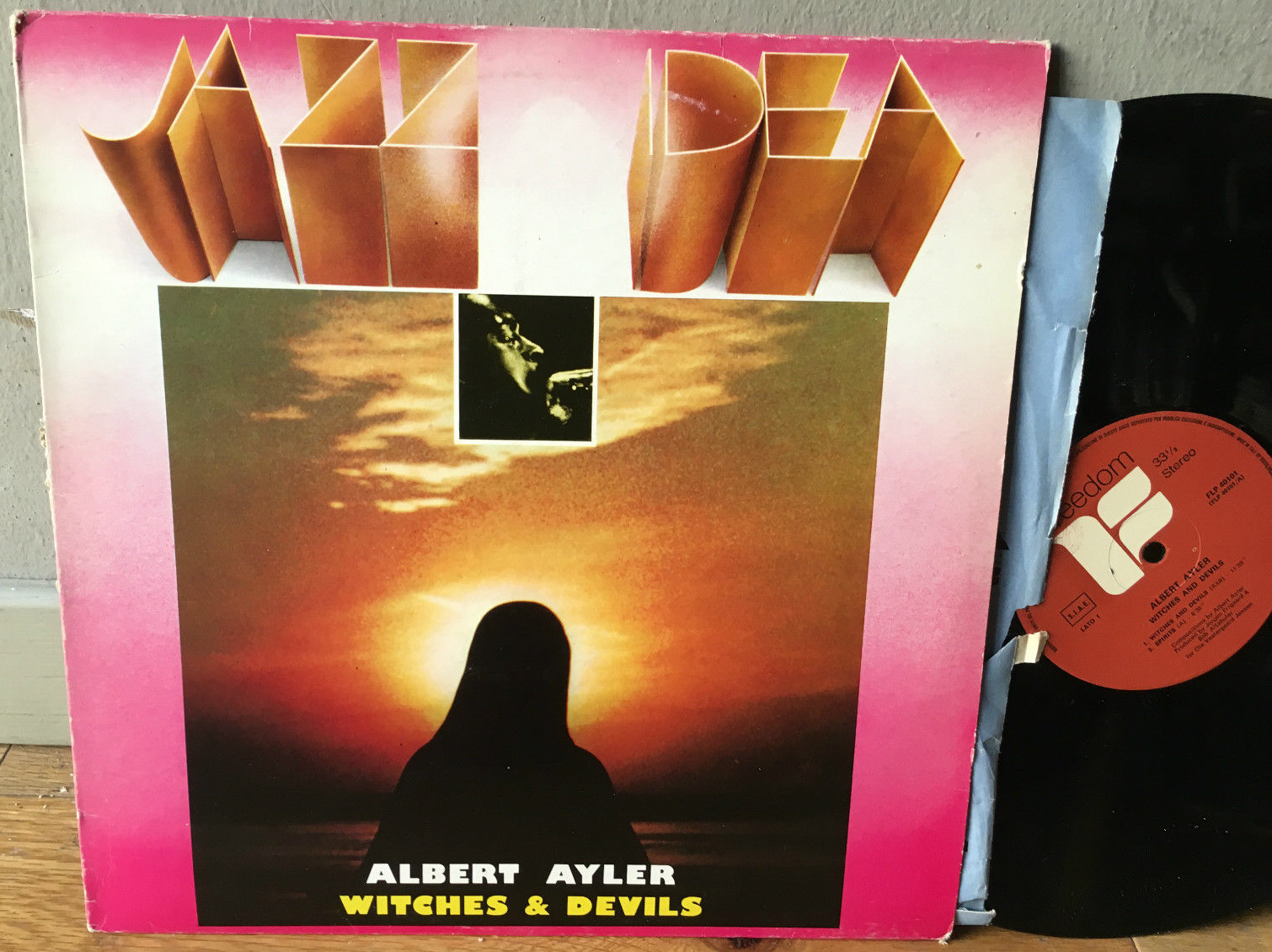 |
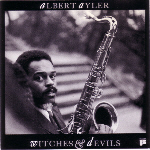 |
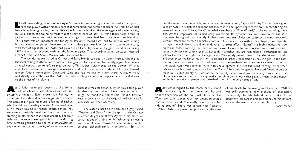 |
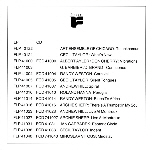 |
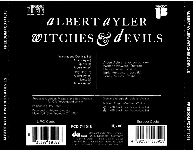 |
||||||||||
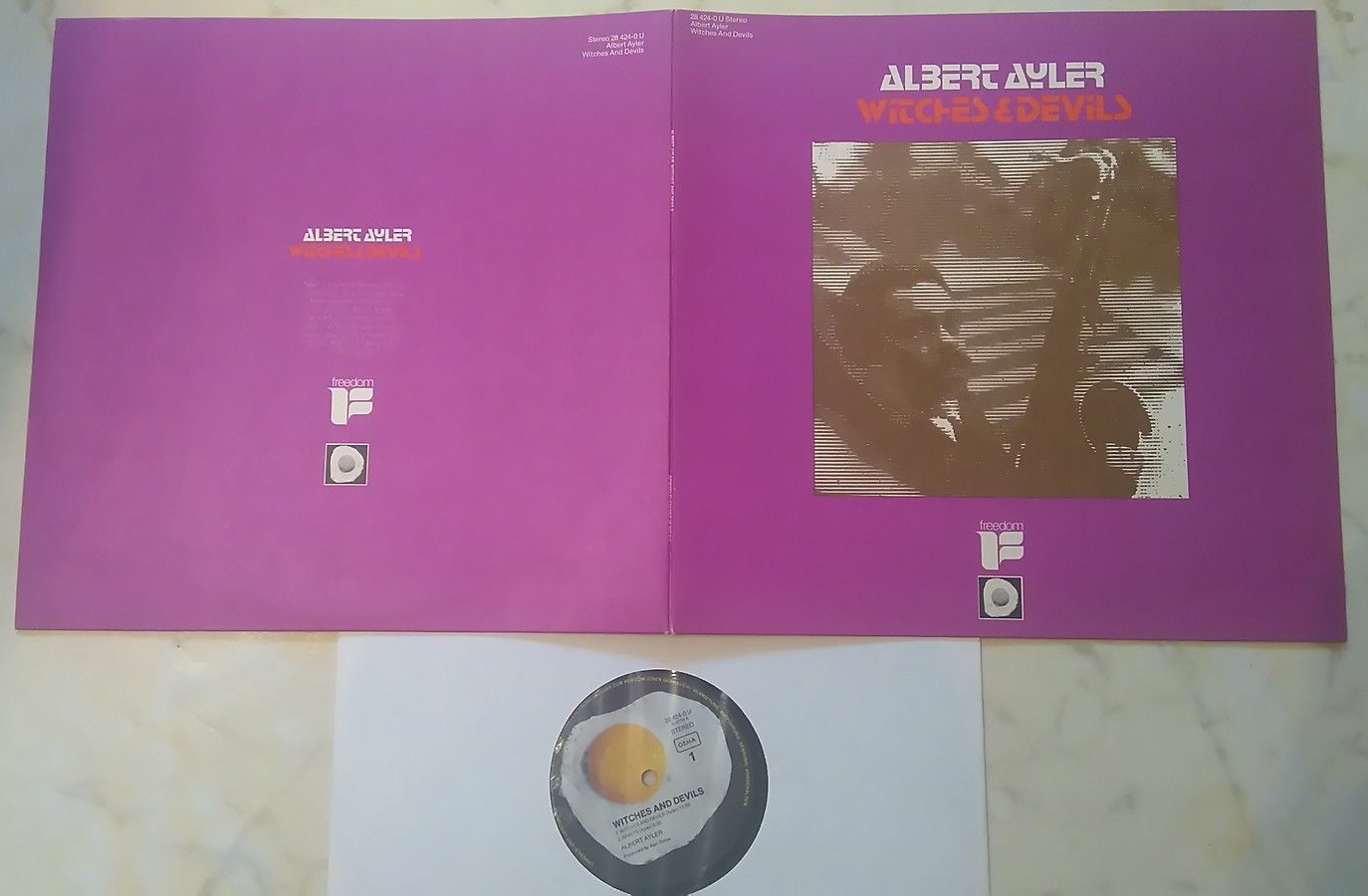 |
|||||||||||||
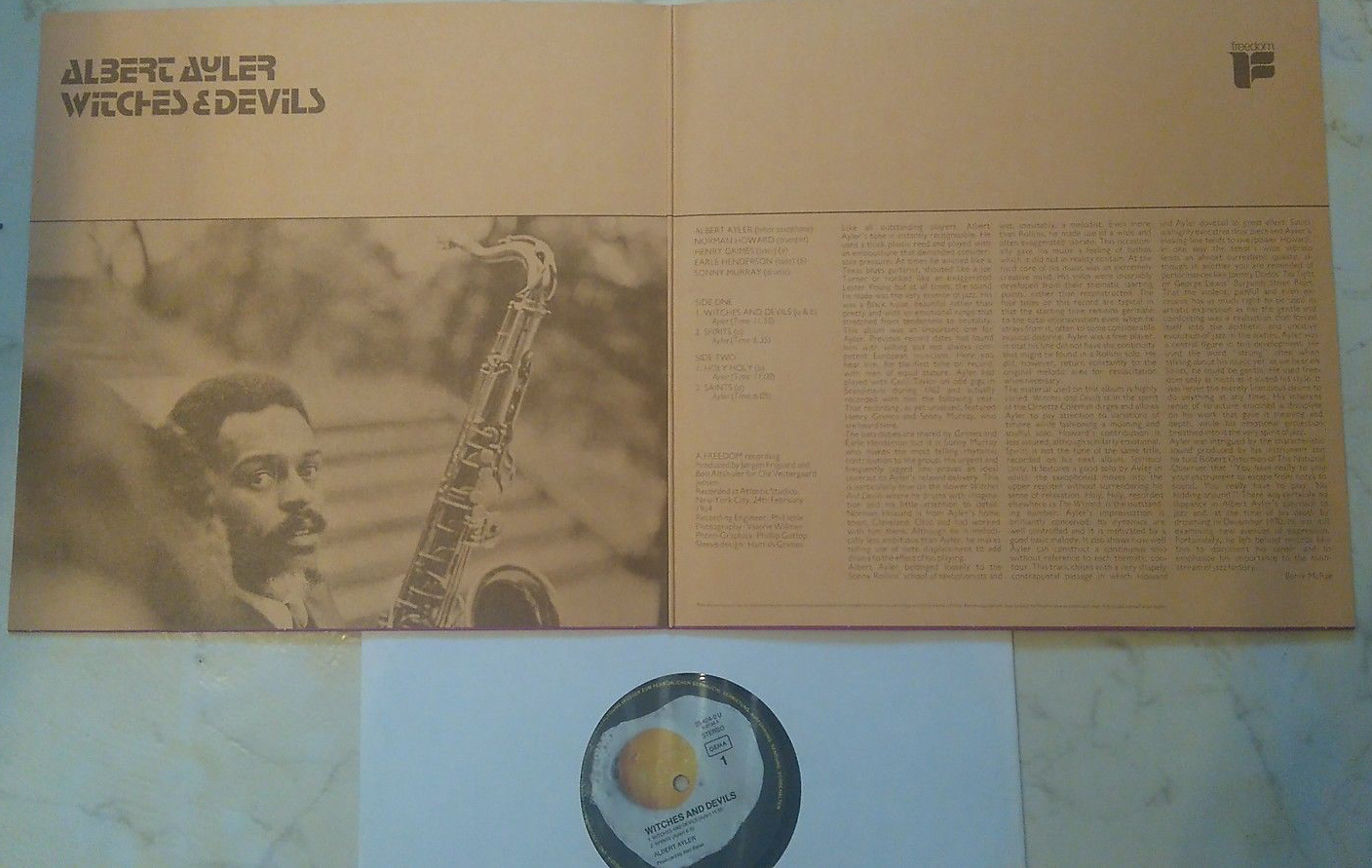 |
 |
||||||
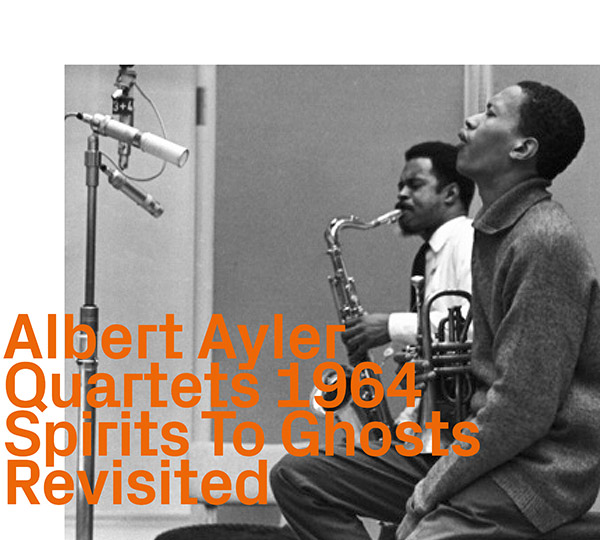 |
||||||
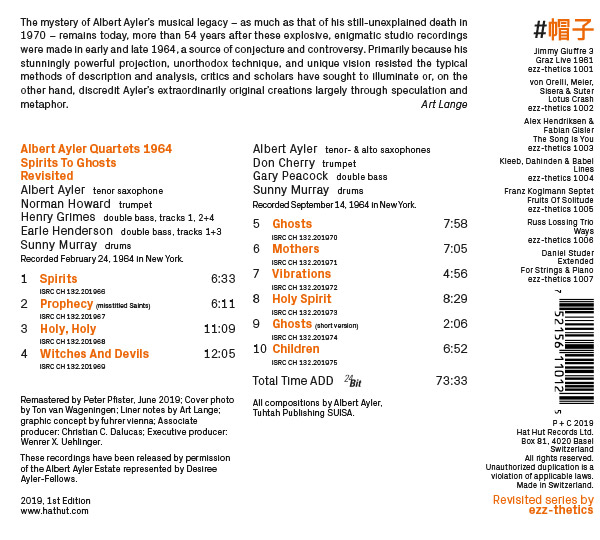 |
||||||
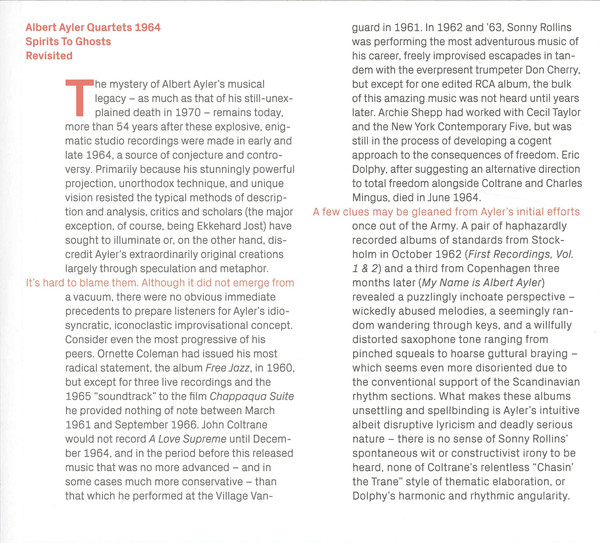 |
||||||
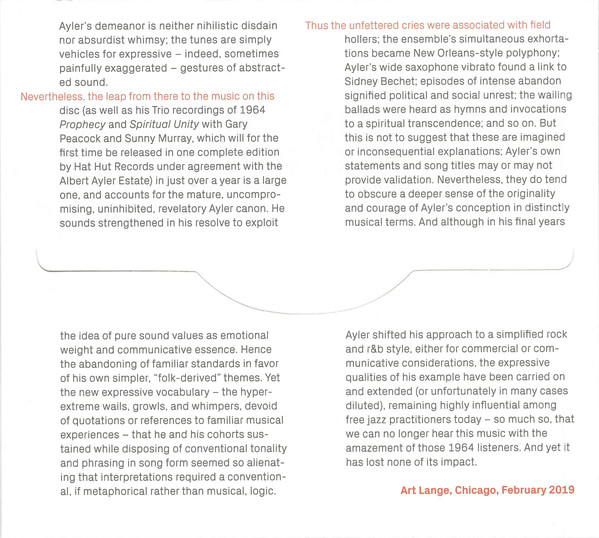 |
||||||
|
This version of Spirits is the only one to challenge the original titling of the four tracks on the album, suggesting that ‘Saints’ should be retitled ‘Prophecy’. Sean Wilkie thinks otherwise and sent me the following explanation of his reasoning.
In Praise of Saints Saints is a significant piece in Albert Ayler’s early oeuvre. It’s one of only three tunes on the most-widely-known version of the Spiritual Unity album and one of the three tunes composed by the saxophonist on the Spirits album, according to a general consensus (that Witches and Devils was composed by Norman Howard). When I recently purchased Quartets 1964, Spirits to Ghosts Revisited, in the excellent ezz-thetics Revisited series by Hat Hut Records, I was puzzled to find the earliest-known recording of Saints re-named. Puzzled; for Saints is not Prophecy, nor Prophecy, Saints. The album of original material recorded by Albert Ayler in February 1964 – Spirits (which many of us know as Witches and Devils) - is one of the few albums of his upon all of whose song-titles we can rely. It is mistaken to think that its version of Saints is a mis-labelled performance of Prophecy; for this tune is demonstrably the same as all the other versions of Saints. Moreover, Hat Hut renamed neither of the other recordings of Saints to be found on their ezzthetics Revisited albums. Albert Ayler recorded Saints on four occasions in 1964; each time, accompanied on drums by Sunny Murray. (A final recording, once again with Murray, and made at the Village Gate in March 1965, is presumed lost.) (1) Saints, 24/2/64, on Spirits (aka Witches and Devils) with Henry Grimes (b) Norman Howard (tp). (2) Saints, 14/6/64, on Albert Smiles With Sunny (re-issued on Holy Ghost, and now on Prophecy Revisited) with Gary Peacock (b). (3) Spirits (sic), [aka Saints], 10/7/64, on Spiritual Unity [common variant] with Gary Peacock (b). (4) Saints, 10/9/64, for Danish radio (and now on European Recordings Autumn 1964 Revisited) with Gary Peacock (b), Don Cherry (crt). Each of these recordings begins with the same short tune, played twice on the saxophone with sparse, responsive accompaniment from the other players. There is no obvious pulse and the tempo is mournful, serious. The melody is rendered reasonably accurately in the sheet music section in this site, and may help the reader, although I think the two semi-quavers on the second beat of the fourth bar are G and F, rather than E and D. Saints was an effective vehicle for improvisation, to judge by these recordings. While preserving the doleful atmosphere, the group nevertheless achieve intense peaks on (4): by contrast, the sparse and skeletal (3) helped to demonstrate the breadth of Ayler’s palette to listeners arriving via Spiritual Unity, disabusing them of the stereotype of ‘free jazz’ as mostly non-stop high-octane screaming. I shall say more about (2) later. It is also relatively easy to avoid miring Saints in the controversies arising from the inconsistencies of the published titles of the saxophonist’s tunes. There is only one recording, (3), in which Saints is incorrectly titled; and only one recording of a different tune mis-labelled as Saints - a live recording of Vibrations, from Club Montmartre, Copenhagen in September 1964. The melody of Saints consists of a descending sequence of three descending three-note phrases, followed by a rising response-phrase in its fourth bar. I will refer to this as the melodic cell of Saints. Each of its four recorded versions begin with two renditions of this cell, both quite faithful to the melody: the earlier recordings of the tune also feature a third rendition, during which a greater liberty is taken with it. On Spiritual Unity, this third rendition is both delayed and incomplete. |
|
|
On the earliest recording, Ayler’s solo improvisation starts (at 0.47), as it were, in place of a fourth rendition of this short melody. It is usually possible to hear some trace of the four-bar form of Saints’ melodic cell in the improvisation immediately following these theme statements (in Gary Peacock’s bass-playing on (2), for example). The main element carried over from the theme, however, is simply the combination of its doleful, pulse-less tempo with the assignation of a leading role to one instrumental voice at any time; initially, the saxophonist, who continues seamlessly after stating the theme. Saints is sparse and skeletal in most of these recorded versions: everyone sounds as though they are accompanying Albert on a phrase-by-phrase basis. And this, I think, distinguishes Saints from many of the better-known tunes in his 1964 repertoire, such as Ghosts and Spirits, whose improvised sections more obviously depend upon elements of form - borrowed from the themes - to which each musician can relate, independently of what their bandmates are doing. Occasionally, Ayler alludes to the melodic cell during his improvisation. On the versions from the albums Spirits and Spiritual Unity, he restates it in full - albeit with considerable licence – on nearing the end of his own improvisation, just prior to a passage spotlighting either Grimes or Peacock. On the last-known version, the appearance of the cell, following a minute or more of the saxophonist’s improvisation, signals the introduction of Don Cherry; first, as an accompanist to Ayler; and then as the featured soloist, with subdued support from Peacock and Murray. Each version of Saints finishes in the same way; with two renditions of the melodic cell and a closing ad lib on its final notes. The version on Spiritual Unity is distinguished by its bugle-call-like closing phrase. Any confusion between Saints and Prophecy - the title track from ESP’s 1975 album - likely derives from a slight similarity between the descending three-note phrases at the beginning of their melodies. The melody of Prophecy, however, appears to begin with only two of these descending phrases, and they are followed by two short ‘bugle-call’ responses, the second one pitched higher than the first. Moreover, the accompaniment during Prophecy - of which there is only one recording, made by the trio at the Cellar Café in June - is much busier than what is usually heard on Saints. And Gary Peacock, in contrast to his free accompaniment on Saints, contributes to the theme of Prophecy with a recurrent three-note bass line (a rising E-F-G). Intriguingly – to me, anyway – the least-typical of Saints’ recorded performances is (2); the one made on the same evening as the only known performance of Prophecy. It deviates from the sparse, responsive way of playing which dominates the other three versions (the ‘peaks’ of (4) notwithstanding), by virtue of the agitated, ‘busy’ accompaniment from Peacock and Murray, in which regard it more resembles Prophecy. Nevertheless, and as I’ve specified in the table above, the thematic aspects of (2) are, and develop in a similar manner to, those of the other three versions of Saints. (2) is also notable for its extended length; from which both saxophonist and bassist benefit. And it hews closer to (3), the other version by the same trio of musicians, in freely and prominently interpolating phrases from the melody of Ghosts. Sean Wilkie, April 2022 *** |
|
Albert Ayler: The Early Albums Collection (4 CD box set) Click below for the Compilation Covers page. |
||
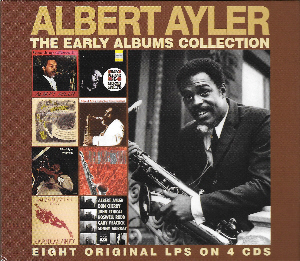 |
||
|
|
|
Home Biography Discography The Music Archives Links What’s New Site Search
|

